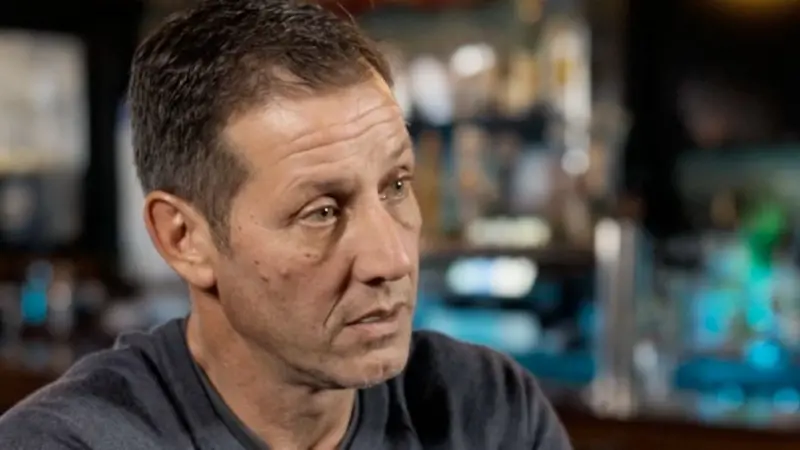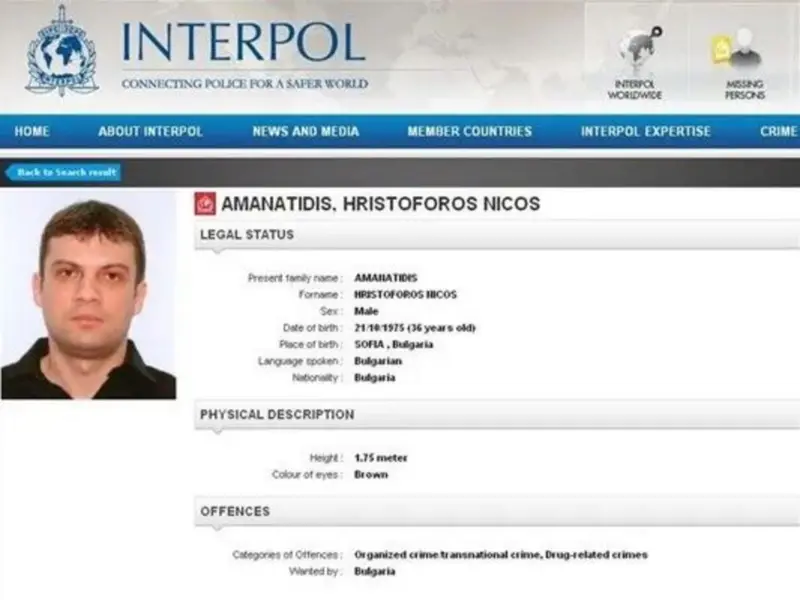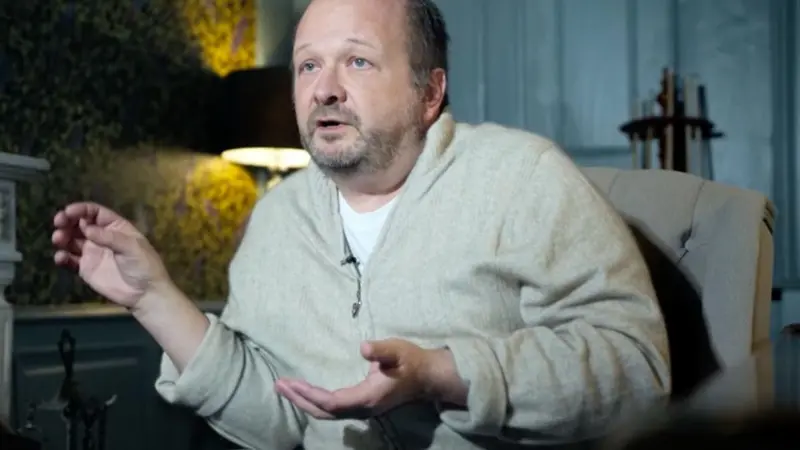В сентябре 2019 года Би-би-си рассказала историю женщины по имени Ружа Игнатова.
Ее имя занесено в список лиц, которых разыскивает ФБР, куда она попала после того, как выманила у частных инвесторов 4,5 млрд долларов США, посулив им небывалые доходы от новой криптовалюты. Получив эти деньги, она буквально растворилась в воздухе.
Команда документальных фильмов Би-би-си из серии BBC Eye Investigations и журналисты программы Panorama попытались узнать, что приключилось с Ружей Игнатовой. Они изучили ее тесные связи с человеком, которого считают одним из главных авторитетов болгарской организованной преступности, и попробовали проверить версию о том, что она была жестоко убита. Сумела ли Игнатова насладиться украденными миллиардами, или же пала жертвой тех самых людей, которых наняла в свою охрану?
Ружа Игнатова родилась в Болгарии, но выросла в Германии. Она закончила Оксфордский университет и сделала успешную карьеру в финансовом секторе, после чего в 2014 году запустила новую криптовалюту OneCoin.
Ей удалось убедить миллионы людей по всему миру инвестировать в новую криптовалюту, посулив им огромную прибыль, подобную той, которую получили первые инвесторы в биткоин.
В действительности же Игнатова, известная как доктор Ружа, организовала искусно замаскированное финансовое мошенничество. В основе законных криптовалют, таких как биткоин, лежат цифровые записи, которых у OneCoin просто не было.
В сентябре 2017 года, когда Игнатовой вплотную стали интересоваться следователи из Германии и США, она вылетела ранним утренним рейсом копании Ryanair из Софии в Афины. После чего ее уже никто и никогда не видел.
На протяжении всего минувшего года журналисты Би-би-си пытались узнать, что же с ней произошло, а главное, жива ли она?
Главным ключом к этому расследованию стало изучение ее ближайшего окружения.

Ричард Рейнхард, начинавший расследование мошенничества с OneCoin, которое совместно проводили Налоговое управление США и ФБР, рассказал Би-би-си об одном из главных людей из окружения Игнатовой, имя которого ранее не разглашалось.
Согласно информации, полученной Би-би-си, речь идет о Христофоросе Никосе Амантидесе, широко известном под именем Таки, которому было поручено обеспечение безопасности Ружи Игнатовой.
“Нам сказали, что за ее физическую безопасность отвечает крупный наркоторговец, — рассказал Би-би-си Рейнхард в первом интервью после того, как он вышел на пенсию в конце 2023 года. — Имя Таки появлялось не один раз. Это не было единичном случаем, а повторяющейся темой”.
Эта информация соответствовала тому, что Би-би-си удалось узнать раньше: в 2019 году юристы правительства США заявили, что глава службы безопасности Игнатовой был крупной фигурой в организованной преступности Болгарии, но не назвали его имя.
“У нас есть доказательства того, что очень значительный, и, возможно, самый успешный наркоторговец за всю историю Болгарии был тесно связан с OneCoin и служил личным охранником [Ружи Игнатовой]”, — сказал тогда один из сотрудников Министерства юстиции США.
Это был тот самый “начальник службы безопасности”, который, как заявил в суде днем ранее другой юрист правительства США, был “причастен к исчезновению” Игнатовой.
Рейнхард также отметил, что большинство людей даже и не подозревают, какой изощренной преступницей была Ружа Игнатова: “Представьте себе беловоротничковую преступность, помноженную на торговлю наркотиками и мафиозные операции”.
Эта версия, похоже, также подтверждается и просочившимися документами Европола, с которыми ознакомились журналисты Би-би-си, согласно которым, полиция Болгарии установила связь между Игнатовой и Таки еще в 2017 году, то есть, до ее исчезновения.
В этих документах говорится, что полиция подозревала Таки в использовании финансовой сети OneCoin для отмывания доходов от незаконного оборота наркотиков.
В его родной Болгарии Таки обладает почти мифической репутацией, подобной репутации Эль Чапо, или Пабло Эскобара.
Многие подозревают его в том, что он является главой болгарской организованной преступности и активным наркоторговцем. В Болгарии он и его сообщники были фигурантами расследований по подозрению в вооруженном ограблении, контрабанде наркотиков и убийстве, но сам Таки так ни разу и не был привлечен к уголовной ответственности.

“Таки — глава болгарской мафии и очень влиятельный человек, — сказал бывший заместитель министра сельского хозяйства Болгарии Иван Христанов, который в 2022 году расследовал обвинения в том, что Таки управлял преступной сетью с помощью коррумпированных чиновников. Сам он в достоверности подобных обвинений не сомневается. — Таки — призрак. Его невозможно увидеть. Вы о нем только слышите. Он даже разговаривает с людьми не напрямую, а через посредников. Но если вы не сделаете так, как он хочет, то вы просто исчезните с лица земли”.
“Таки был единственным человеком, который мог защитить ее [Игнатову] от всех этих расследований, в том числе со стороны иностранных ведомств”, — отметил Христанов.

Би-би-си отправила запрос правительству Болгарии об обвинениях в адрес коррумпированных чиновников, но ответа не получила. Софийская же прокуратура заявила, что “не покрывает преступления, также как и лиц, которые могли их совершить”.
Сейчас считается, что Таки живет в Дубае, где Игнатова купила роскошный пентхаус и где на ее банковские счета поступили десятки миллионов долларов в результате мошенничества с OneCoin.
На данный момент неизвестно, как именно познакомились Таки и Ружа Игнатова, и был ли он связан с OneCoin с самого начала, однако многие источники утверждают, что у них были близкие личные отношения и что он является крестным отцом ее дочери.
Один близкий к Игнатовой человек из Болгарии сообщил Би-би-си, что она, возможно, платила Таки до 100 000 евро в месяц за свою защиту.
Кроме того, похоже, что Игнатову и Таки связывали и другие финансовые отношения.
Например, в документах Европола упоминается сложная сделка по продаже земельного участка на черноморском побережье Болгарии, которая связывает одну из компаний Игнатовой с женой Таки.
Би-би-си получила секретные документы полиции от Фрэнка Шнайдера, бывшего осведомителя и советника Игнатовой.
Он рассказал Би-би-си, что его бывшая начальница работала с “жуликами” и “гангстерами”.
Би-би-си разговаривала со Шнайдером в его доме во Франции, где он находился под домашним арестом в ожидании экстрадиции в США по делу о мошенничестве, связанном с криптовалютой OneCoin. Однако он отказался назвать какие бы то ни было имена.
“Я не скажу вам о ком идет речь, потому что у меня есть семья… Это настоящая серьезная организованная преступность”, — сказал он.
Возможно, что в конечном итоге охранник Игнатовой сам же на нее и напал.
В 2022 году болгарский журналист Димитар Стоянов и его коллеги из новостного издания Bird.bg, занимающегося расследованиями, получили полицейский отчет, который был найден в доме убитого болгарского полицейского.
В документе информатор полиции подробно описывает, как подслушал зятя Таки, который в пьяном виде говорил, что Игнатова была убита по приказу Таки в конце 2018 года, а ее тело расчленили и сбросили с яхты в Ионическое море. По словам Стоянова такой ход событий “очень и очень возможен”.
Стоянов также говорит, что подлинность полученного ими документа была подтверждена болгарскими чиновниками, не говоря уже и о том, что многочисленные преступные сообщники Таки тоже считают, что он действительно ее убил.
Би-би-си не смогла получить независимого подтверждения справедливости этих заявлений.
Партнеры Таки говорили, что Игнатова стала для него обузой, поскольку он хотел устранить свидетельства своих связей с мошенничеством с криптовалютой OneCoin.
В их число входит, например, Красимир Каменов, известный как Куро, который какое-то время находился в списках Интерпола по обвинению в убийстве.
По словам Стоянова, Куро рассказал ему, что был свидетелем того, как Таки обсуждал свои криминальные дела в присутствии Игнатовой. Но когда Куро спросил Таки, разумно ли доверять ей такие секреты, тот ответил: “Не волнуйся, она уже почти мертвая”.
Куро также утверждал, что разговаривал с ЦРУ о Таки, в том числе по поводу подозрений в том, что тот, якобы, заказал убийство Ружи Игнатовой. Источники, близкие к Куро, подтвердили Би-би-си, что его встреча с ЦРУ состоялась в конце 2022 года.
В мае 2023 года Куро с женой были убиты в своем доме в Кейптауне. Кроме них были убиты еще два, работавших на Куро, человека. Южноафриканская полиция все еще ищет убийц, но бывший заместитель министра сельского хозяйства Болгарии Христанов считает, что эти смерти связаны именно с Таки.
“Некоторых людей пришлось устранить, потому что они знали о Таки слишком много. Это была своего рода публичная казнь, больше похожая на предостережение, мол, будьте поосторожнее с теми, с кем имеете дело”, — сказал Христанов в интервью Би-би-си.
Журналист Димитар Стоянов сказал, что после публикации обвинений [Таки} в убийстве Игнатовой ему и его коллегам угрожали смертью, что вынудило его в четвертый раз за свою карьеру временно покинуть Болгарию.
Cтоянов не говорит, что ему не известен конкретный мотив предполагаемого убийства, но документы, регистрирующие недвижимость, также как и рассказы очевидцев, подтверждают, что после исчезновения Ружи Игнатовой, часть ее недвижимости в Болгарии используется людьми, связанными с Таки.

Таки ни разу не был арестован по обвинению в убийстве Игнатовой. Ее тело так и не было найдено, и следователи говорят, что у них не хватает доказательств для того, чтобы привлечь его к ответственности.
Однако бывший следователь Налогового управления США Ричард Рейнхардт считает, что Игнатова, скорее всего, мертва. У него тоже нет каких бы то ни было доказательств, которые бы связывали ее смерть с Таки, но он считает, что такой ход событий соответствует тому, как действуют наркокартели.
“Среди воров нет чести… зная, насколько жестокими являются картели, если бы [Таки] решил, что она представляет для него угрозу… он, вероятно, устранил бы ее, чтобы не быть пойманным”, — сказал он.
Би-би-си написала адвокатам Таки, попросив их разъяснить обвинения по поводу исчезновения Игнатовой, но ответа не получила.
В 2022 году Игнатова была внесена в первую десятку списка ФБР самых разыскиваемых преступников, где ее имя остается и по сей день.
Команда Би-би-си, создавшая подкаст The Missing Cryptoqueen (“Пропавшая криптокоролева”), получила различные сообщения и информацию о местонахождении Игнатовой уже после того, как произошло ее предполагаемое убийство, включая подробности о неудачной полицейской операции в Греции в 2022 году, целью которой был ее арест.
Возможно, слухи о ее смерти — ни что иное, как еще один блестящий маневр, призванный сбить всех со следа.
Если это так, то с годами ей, вероятно, станет все труднее скрываться от правосудия. Однако, Христанов считает, что это маловероятно.
Тогда как Рейнхард говорит, что ФБР “держит людей в первой десятке своего списка вовсе не для развлечения”.
Имена разыскиваемых преступников удаляются из него только в том случае, если появляются “неопровержимые доказательства” их смерти. А учитывая обстоятельства исчезновения Ружи Игнатовой, такие доказательства могут вообще никогда не появиться.
Все это означает, что на сегодняшний день пропавшая “криптокоролева” остается женщиной, на которую по-прежнему ведется охота.


